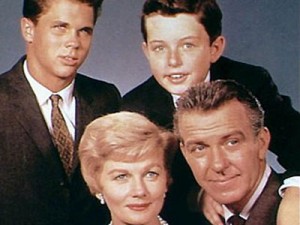
I remain bemused by the passionate cheerleading for the Syrian ‘insurgency’ exhibited by so many of my Lefty comrades. In the case of The Great Wet Hen himself, Louis Proyect, the mania seems to have tipped him over into taking sides in what is, after all, a religious war — to the extent that any war is really a religious war. I refer of course to the Sunni/Shia aspect of recent events in the Middle East. Louis appears to be on the verge of a conversion to Sunnism. (Of course I have a Proddie weakness for Shiism myself, so who am I to talk?)
The GWH recently penned a furious essay which took its starting point from a creepy little Israeli rumor site called Debkafile. Louis writes:
Today a Debkafiles item titled “US and Iran’s First Joint Military Venture: Fighting al Qaeda in Iraq” turned up on Facebook. As you might know, Debkafiles is an Israeli intelligence website committed to the “war on terror” so you can assume that they are pleased with Obama’s turn against a common enemy.
Now this is so muddled that it qualifies as Not Even Wrong.
First of all, who cares what appears on Debkafiles? Does even the GWH believe that a pipsqueak operation like this gives us a window into the deepest counsels of Netanyahu et al.?
But even if we join the Hen in his curious enthusiasm for Debkafile, he doesn’t seem to have read the piece he cites very alertly. It’s written in a superficially straight, journalistic style, but clearly reflects a certain dividedness of mind. An undertone of dismay about hints of a US rapprochement with Iran coexist uneasily with the usual sloganeering about al-Qaeda, ‘terrorism’, ‘jihadists’ and so on — these latter being the people that the US and Iran have supposedly teamed up to defeat. The GWH’s comment that ‘you can assume [Debkafile] is pleased’ seems manifestly wrong if you actually read the piece.
But of course, as noted, Debkafile is of no consequence. Let’s step back a moment from this kind of offal-reading and just do a little thinking about Israel and its situation.
The most important fact about Israel is that all its neighbors hate it — with good reason. Israel has no friends in the region. How could it? Everybody there understands perfectly well that the Israeli game plan is to become the unrivalled regional hegemon, and its tactical approach, of some decades’ standing, is to weaken, destabilize, and if necessary dismember all the states in the region who might offer any competition. Even the Sunni petroligarchs of the Gulf can hardly be expected to sign on to this proyect project.
But fortunately for Israel, its neighbors are also divided among themselves.
The gingham dog and the calico cat
Side by side on the table sat;
‘T was half-past twelve, and (what do you think!)
Nor one nor t’ other had slept a wink!
The old Dutch clock and the Chinese plate
Appeared to know as sure as fate
There was going to be a terrible spat.
So the obvious tactic is ‘both ends against the middle’. It seems unlikely that the Israeli regime wants either the petroligarchs or the Iranians and their allies to achieve an actual clear-cut victory. Rather, as with the gingham dog and the calico cat, the hope is surely that they eat each other up.
At the strategic level, of course, Iran is more worrisome than the Gulfi states; it’s a real country and not just a postcolonial contrivance ginned up on top of an oil field. Syria is nearby, and plays a role in Lebanon, also nearby; and Hizbollah and Hamas are thorns in the Israeli side, as ‘Qaeda’ is not. And this, I think, is the reason why Israel’s amen corner in the US is so wildly enthusiastic about the Sunni reptile-funded Syrian insurgency. Not to mention the Hipster Insurgency in Iran itself, a few years back.
But then again, time was that Iran — back in the dear old Shah’s day — was a useful counterbalance for the Israelis against Arab nationalism; and who knows but what a chastened, globalized Iran might not someday play that role once more? Hey, even the Sunnis have been known to get frisky from time to time.
All this seems like Politics 101 to me — an improvisatory muddle, reeling from crisis to crisis. States collude and simultaneously contend. To update an old observation, states have neither friends nor enemies — only frenemies.
The Hen doesn’t think this way, though. For him, as far as I can tell, it’s all a question of trivial lemmata derived from deep essences. All the bad guys are of course on the same side. Hey, they’re bad, aren’t they? What deeper bond could there be?












